- Features
- Active Directory password auditing tool
Comprehensive Active Directory password auditing
One strategy hackers might use to subvert the security of a network is by obtaining access to users' Active Directory domain accounts through cyberattacks like brute-force attacks and password spraying. For years, the common tactic admins have taken up to detect attacks like these is manually auditing the password-based authentication attempts made by users. Though effective, manually auditing is time-consuming and complex.
ADSelfService Plus helps admins with Active Directory password auditing by providing detailed reports like the User Attempts Audit Report, Soon-to-expire Password Users Report, and Password Expired Users Report via its out-of-the-box Reports tool.
Soon-to-expire Password Users Report
This report audits the following details:
- The display name and SAM Account Name of each Active Directory user with a soon-to-expire password.
- The date on which their current password was set.
- The date on which their current password will expire.
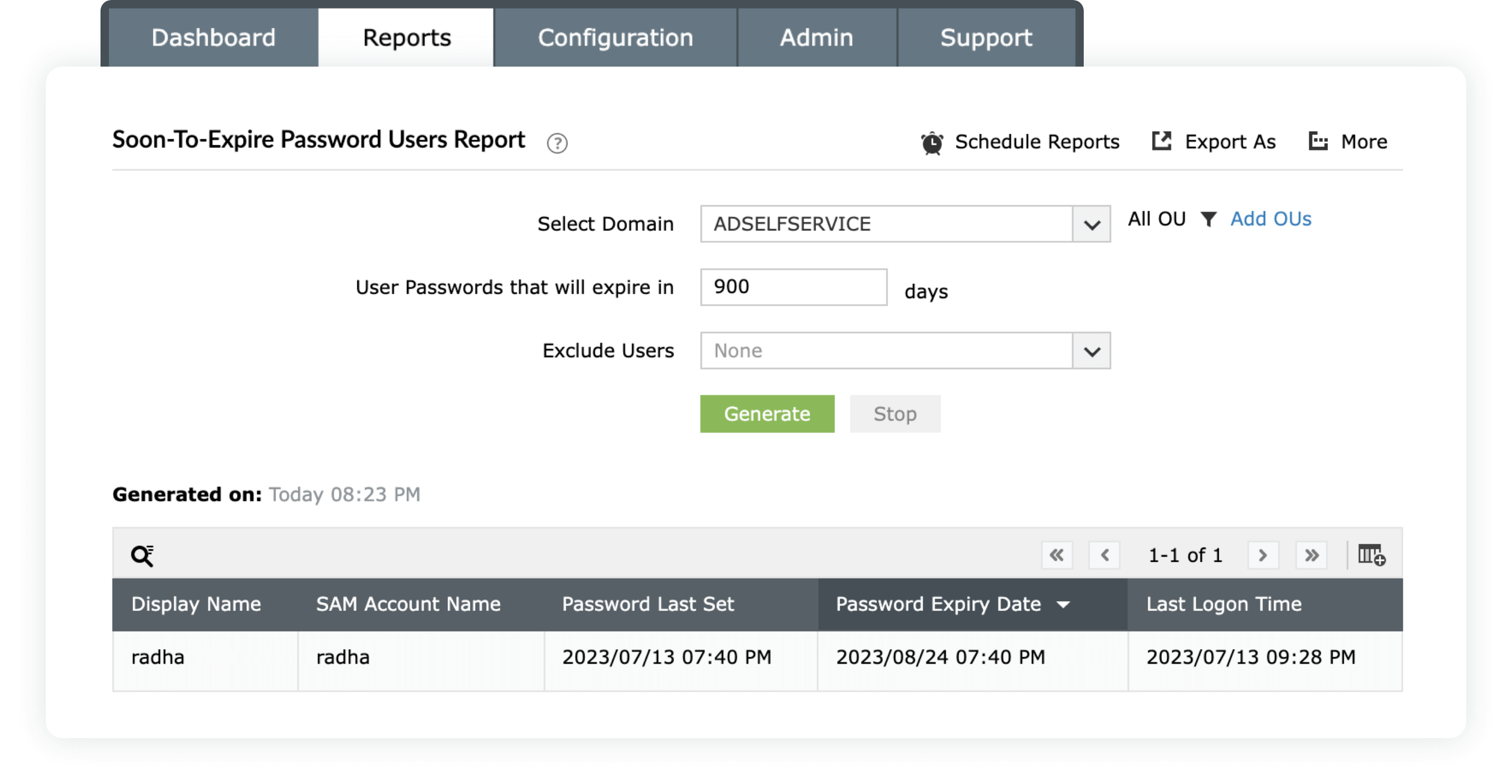
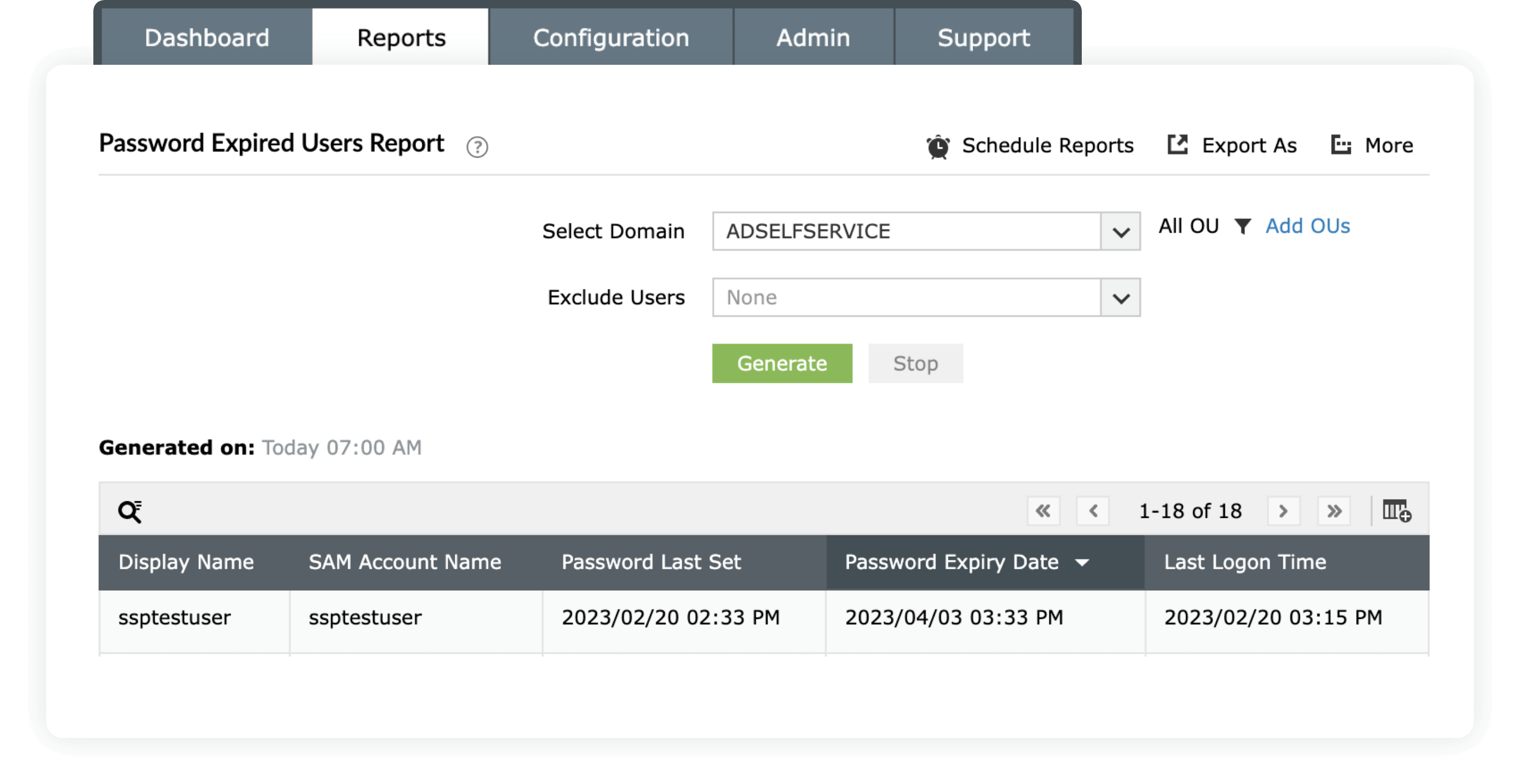
Password Expired Users Report
This report audits:
- The display name and SAM Account Name of each Active Directory user with a soon-to-expire password.
- The date on which their expired password was set.
- The date on which their password expired.
User Attempts Audit Report
This report is useful in determining why a user's account was locked out by providing details on:
- The number of attempts a user makes to log in to the ADSelfService Plus self-service portal using their Active Directory password.
- The date and time of the login attempts.
- The status of the login attempts.
- The machine and IP address from which the attempts originated.
This report is useful in determining why a user's account was locked out.
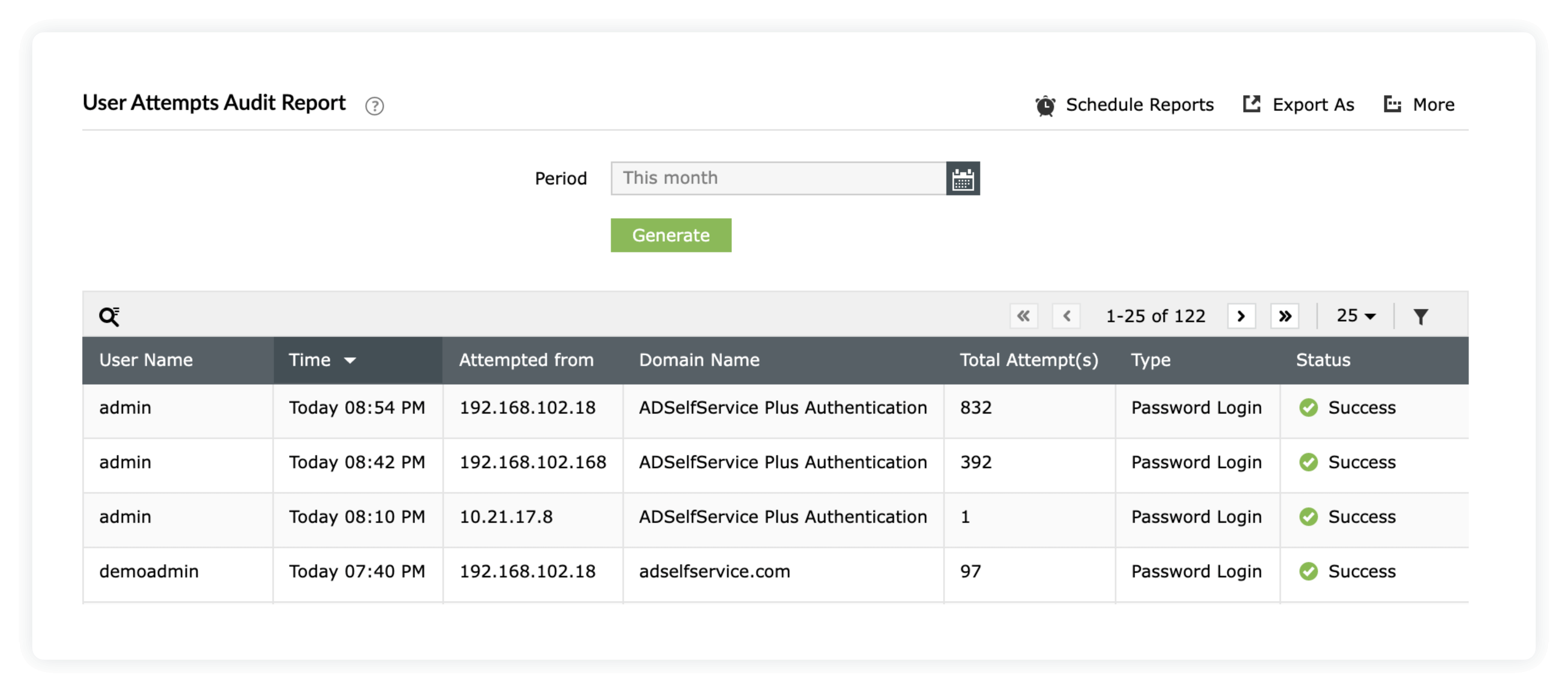
Identity verification failures:
These audit reports provide details on:
- The number of unsuccessful attempts made by users while proving their identities.
- Users who have been locked out repeatedly within a fixed duration and subsequently blocked. If the admin finds it to be a legitimate lockout, they can unlock the user from the same report screen.
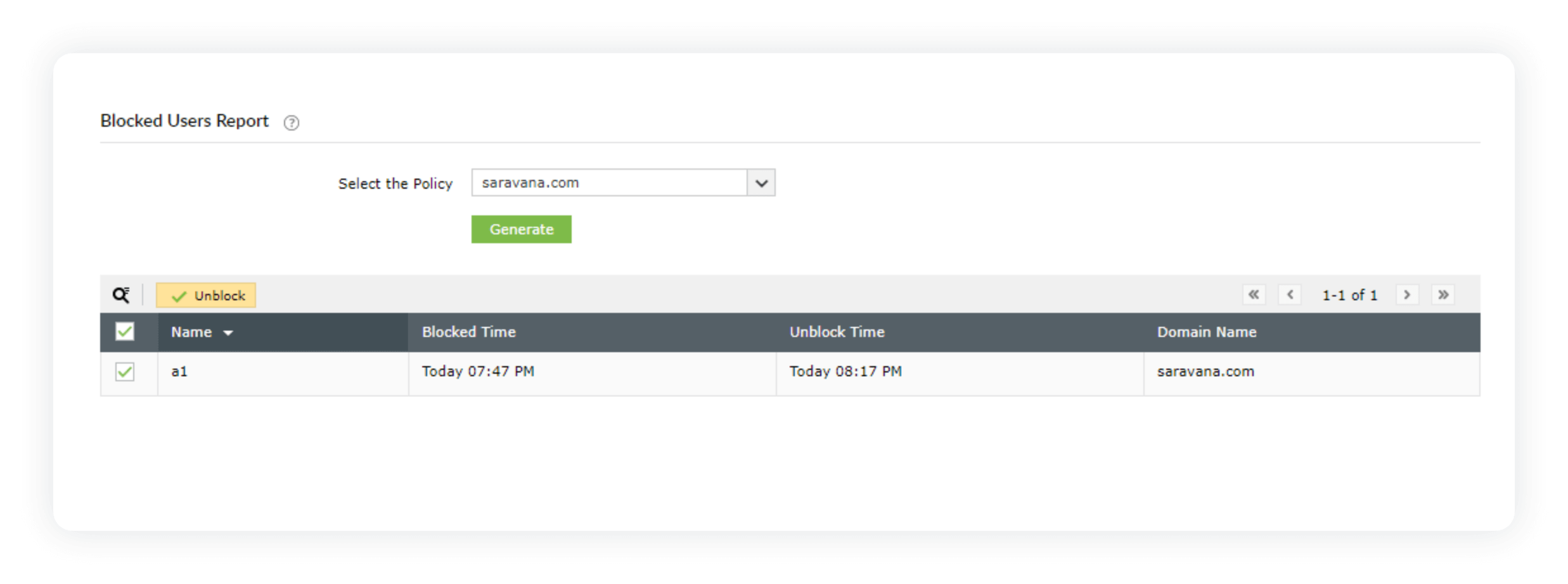
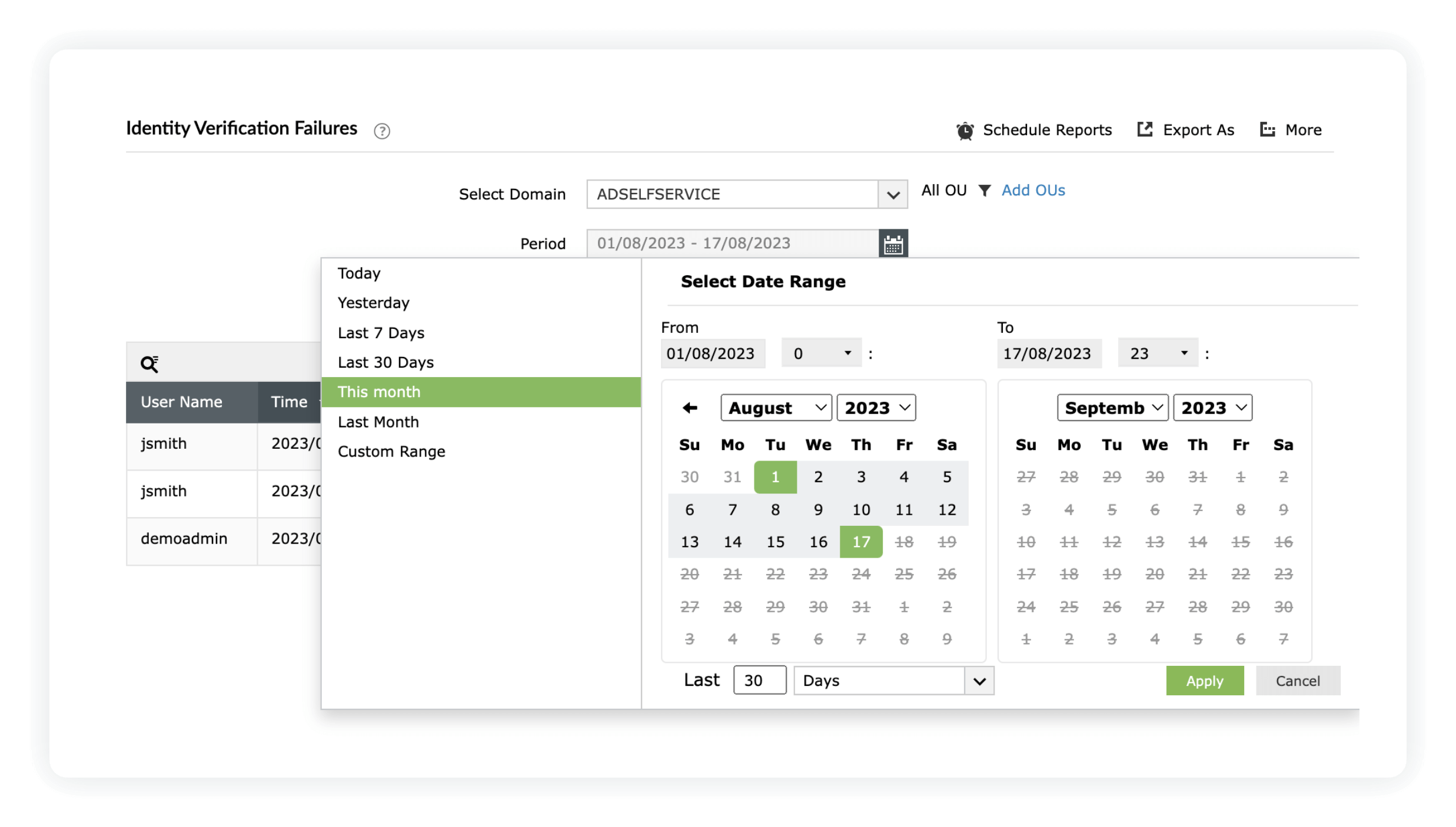
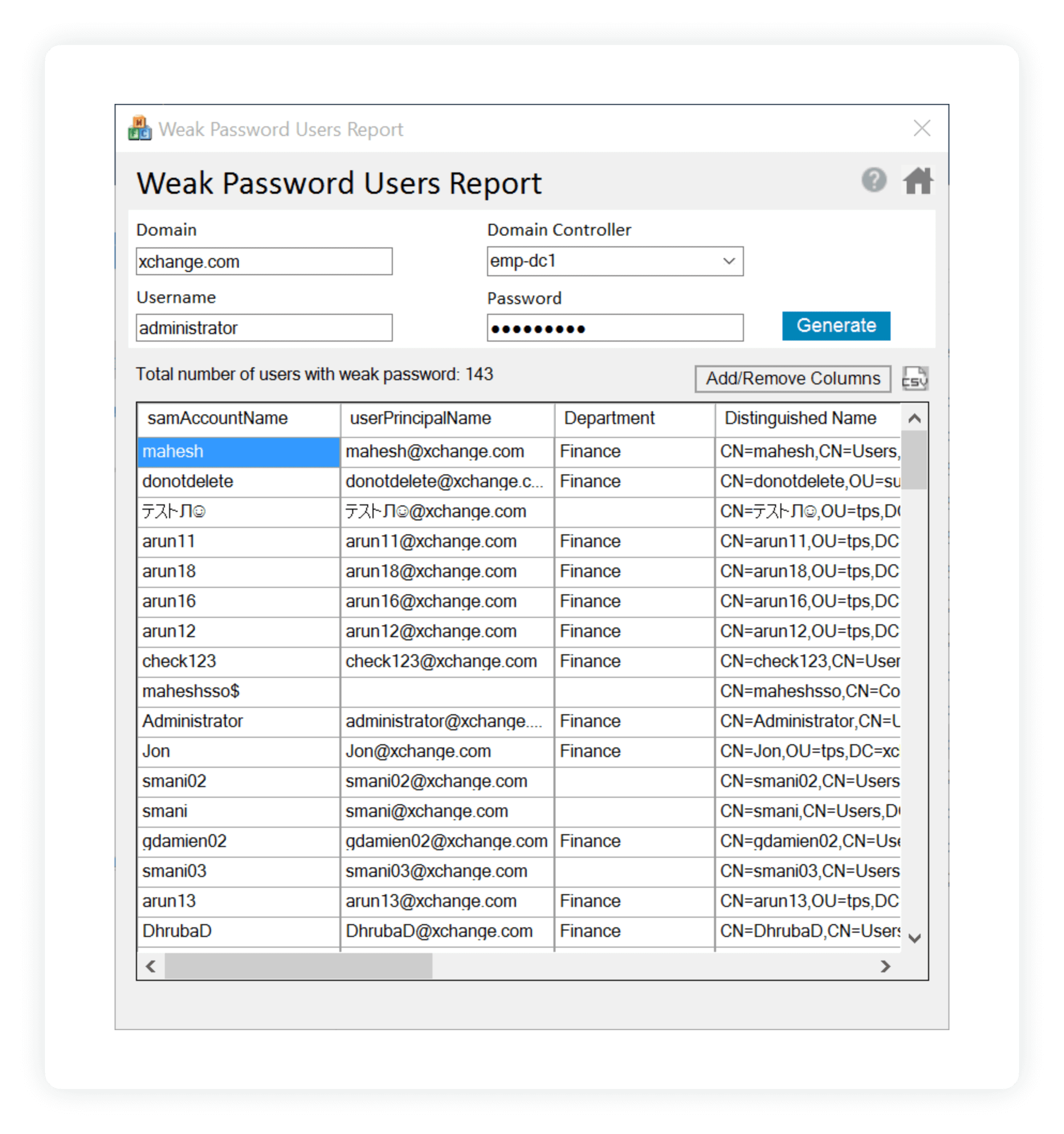
Active Directory Weak Password Users report
The Weak Password Users Report generates a detailed list of user accounts with weak domain passwords by comparing them against a list of vulnerable and commonly used passwords. Admins can then force these users to change their passwords the next time they log on.
Ensuring Active Directory password complexity
Using an effective password auditing tool to monitor users' Active Directory password authentication is just the first step of a two-part process. The next step is ensuring the use of strong passwords.
ADSelfService Plus helps admins ensure users are setting strong passwords during password resets and changes across their Active Directory domain and cloud application accounts. Admins can create multiple custom password policies based on users’ privileges, and enforce these policies based on organizational units and groups.
With ADSelfService Plus, administrators can:
- Restrict the number of special characters, numbers, and Unicode characters in passwords.
- Enforce a password history check during password resets, and restrict the consecutive repetition of a specific character from the username (e.g. “aaaaa” or “user01”).
- Restrict keyboard sequences, dictionary words, and palindromes.
- Specify the minimum and maximum password length.
- Offer visual feedback on a user's password strength during password resets and password changes.
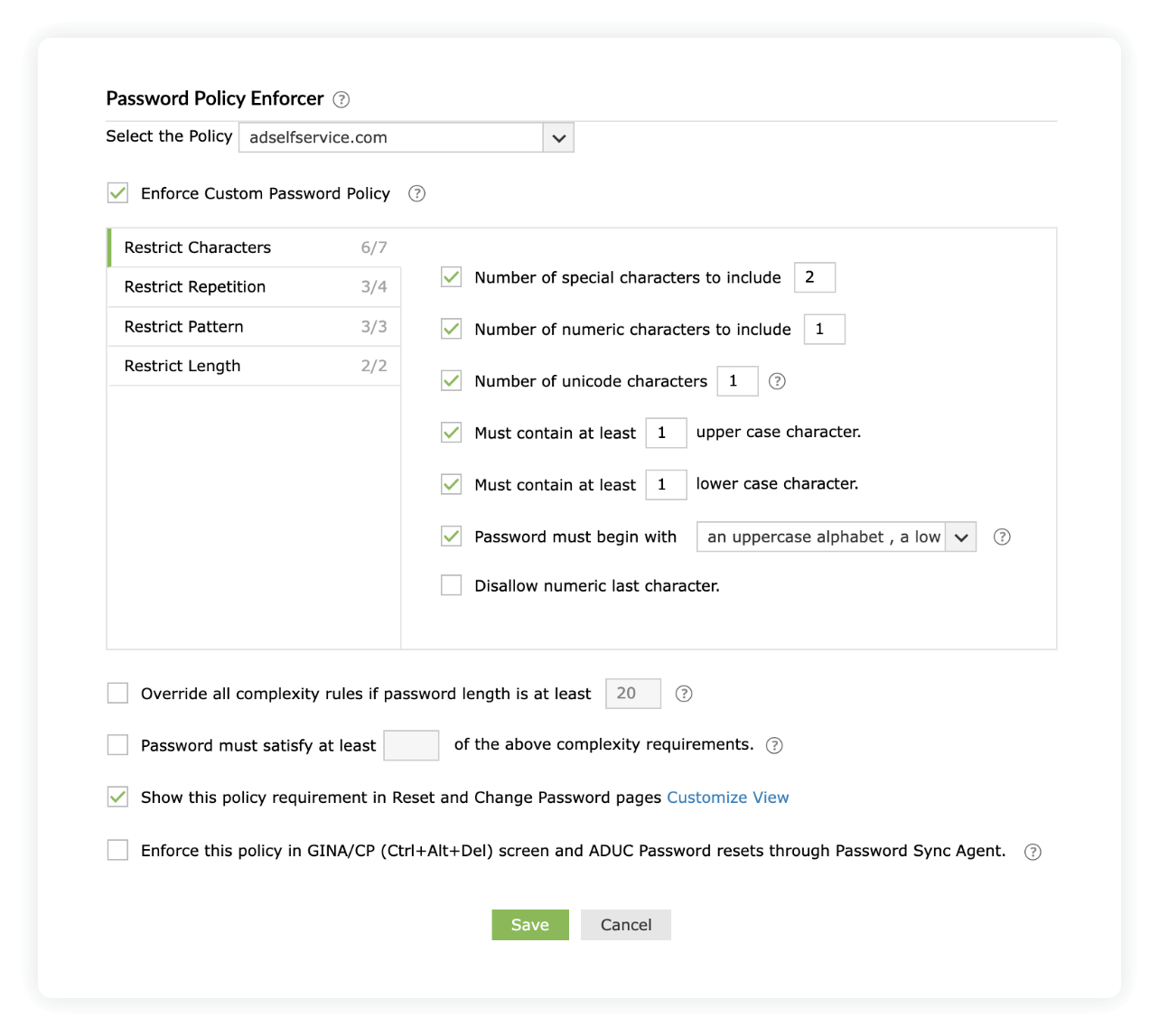
FAQs
What is an Active Directory password audit?
Active Directory password audit involves monitoring the status of your users' passwords as well as their authentication attempts so the IT admin is notified about weak Active Directory passwords or any abnormal authentication behavior.
Why should I audit my users' Active Directory passwords?
Active Directory password audits help you gauge the strength of your users' passwords and take the necessary measures to strengthen them. Since strong passwords help your organization steer clear of various password attacks, it is recommended that you audit your users passwords on a regular basis.
Monitoring user authentication attempts, in addition to passwords, helps you detect suspicious authentication activity, like multiple consecutive wrong password attempts, logins during non-business hours, and logins from a drastically different geolocation. IT admins usually manually audit user authentication attempts, which, although effective, is a tedious and time-consuming process. Using an Active Directory password audit tool helps IT admins by providing accurate, real-time Active Directory password reports.
Why should I choose ADSelfService Plus' Active Directory password audit tool for my organization?
ManageEngine ADSelfService Plus provides comprehensive Active Directory password reports, such as the User Attempts Audit Report, Soon-to-expire Password Users Report, and Password Expired Users Report, which assists you in conducting routine audits of your users' password system and taking corrective measures when required.
To gain a better understanding of ADSelfService Plus' Active Directory password audit capability, please schedule a personalized web demo with our solution experts, or download a free, 30-day trial to explore the solution on your own.
How can I check the effectiveness of Active Directory password complexity?
You can enhance your Active Directory password complexity by deploying ADSelfService Plus' Password Policy Enforcer in your organization.
The Password Policy Enforcer helps your users create strong passwords with advanced configurations like restricting the number of special characters, numbers, and Unicode characters allowed in passwords; enforcing a password history check during password resets; restricting keyboard sequences, dictionary words, and palindromes; and specifying the minimum and maximum password length. As an IT admin, you can create and enforce multiple custom password policies based on organizational units or groups.
ADSelfService Plus supports
Adaptive MFA
Enable context-based MFA with 19 different authentication factors for endpoint and application logins.
Learn morePassword management and security
Enable context-based MFA with 19 different authentication factors for endpoint and application logins.
Learn moreEnterprise self-service
Delegate profile updates and group subscriptions to end users and monitor these self-service actions with approval workflows.
Learn moreRemote work enablement
Enhance remote work with cached credential updates, secure logins, and mobile password management.
Learn more









